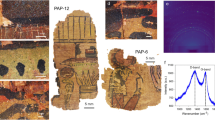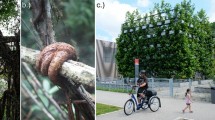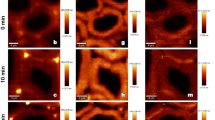Abstract
THE peel-method of preparing sections of fossil plants was briefly described by me in NATURE of Oct. 13, 1928, p.571. The use of cellulose esters was recommended for preparing peel-sections. Since writing that letter, I have performed experiments on the use of gelatine instead of cellulose esters, and have obtained results which fully justify the adoption of gelatine on many occasions in which this type of section is required. For small sections the cellulose ester solutions are more easily applicable, but for large sections, for example, those exceeding 2 sq. decimetres in area, gelatine is preferable.
This is a preview of subscription content, access via your institution
Access options
Subscribe to this journal
Receive 51 print issues and online access
$199.00 per year
only $3.90 per issue
Buy this article
- Purchase on Springer Link
- Instant access to full article PDF
Prices may be subject to local taxes which are calculated during checkout
Similar content being viewed by others
Author information
Authors and Affiliations
Rights and permissions
About this article
Cite this article
WALTON, J. Improvements in the Peel-Method of Preparing Sections of Fossil Plants. Nature 125, 413–414 (1930). https://doi.org/10.1038/125413b0
Issue Date:
DOI: https://doi.org/10.1038/125413b0
Comments
By submitting a comment you agree to abide by our Terms and Community Guidelines. If you find something abusive or that does not comply with our terms or guidelines please flag it as inappropriate.



